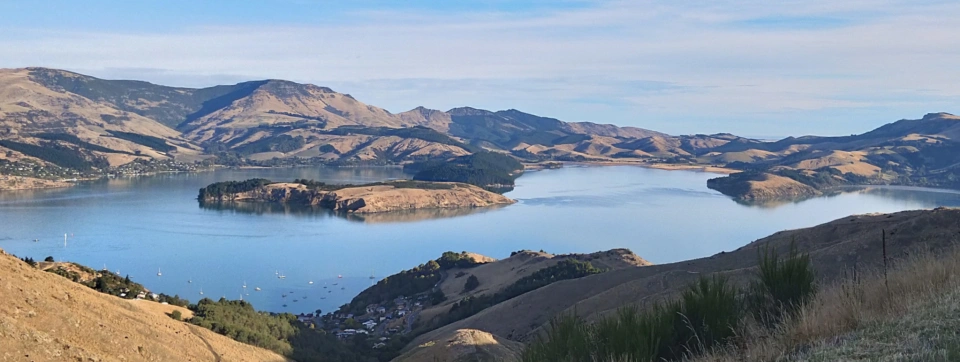Through that intervening 300 million years, it has changed dramatically. The last period of glaciation was 12,000 years ago, when Sydney Harbour was a river valley. It was carved by glaciers at that time. When people think about climate change and rising ocean levels - at that time the ocean was 120 metres lower than it is today.
So what happened is when those glaciers melted 12,000 years ago – what is now Sydney Harbour was a river valley that was drowned. The water flooded in and the water level rose 120 metres. If you think about that in the context of where Sydney exists now, the Sydney of today once would have been well above the water line.

When those glaciers melted 12,000 years ago – what is now Sydney Harbour was a river valley that was drowned. The water flooded in and the water level rose 120 metres.
Through that intervening 300 million years, it has changed dramatically. The last period of glaciation was 12,000 years ago, when Sydney Harbour was a river valley. It was carved by glaciers at that time. When people think about climate change and rising ocean levels - at that time the ocean was 120 metres lower than it is today.
So what happened is when those glaciers melted 12,000 years ago – what is now Sydney Harbour was a river valley that was drowned. The water flooded in and the water level rose 120 metres. If you think about that in the context of where Sydney exists now, the Sydney of today once would have been well above the water line.

When those glaciers melted 12,000 years ago – what is now Sydney Harbour was a river valley that was drowned. The water flooded in and the water level rose 120 metres.
You might like...

Around Christchurch ~ Cycle from Sea to Summit
Writer Helen Cushing recounts a wonderful day's cycling over the hills near Christchurch in New Zealand with views across to Lyttleton Harbour and the Banks Peninsula

Improving reproductive success of forty spotted pardalotes
This study found that giving forty-spotted pardalotes support to 'self-fumigate' their nests increased their reproductive success more than tenfold

Jane Goodall on the web of life
Jane Goodall makes a plea for saving Earth's fragile web of life in this moving short film.

How to save life on Earth
Biologist and Pulitzer winner E.O. Wilson's proposes a bold plan to preserve the world’s biodiversity: set aside half of the entire planet for natural habitats.
Newsletter
Sign up to keep in touch with articles, updates, events or news from Kuno, your platform for nature
